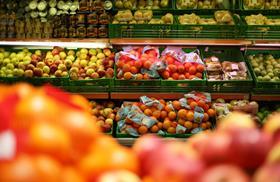
The European Commission EC is urging member states to avoid “uncoordinated” measures that could disrupt agri-food markets as they try to manage the impact of the war in Ukraine.
The request was made at the first meeting of the European Mechanism for Preparedness and Response to a Food Security Crisis on Tuesday. The meeting was organised by the commission and brought together representatives from member states and leading food industry groups.
At the meeting, the participants stressed the need to act in a unified way to minimise disturbances in the markets, community sources said.
In a reference to unilateral decisions taken by some member states to impose export restrictions in order to stockpile products, Agriculture Commissioner Janusz Wojciechowski warned against “acting too quickly and in an uncoordinated way”.
Some countries, such as Hungary, have restricted exports of certain agricultural products to ensure a reserve due to fears generated by the conflict in Ukraine.
The commissioner warned that this approach “would destabilise the markets and further increase the risks”.
Stressing that the European Union is not at risk of food shortages, analysts said that the immediate impact of the conflict would be seen in increased prices throughout the supply chain, and disruption to trade flows to and from Ukraine and Russia and its effect on global food security. Russia and Ukraine are key suppliers of products including grain and fertiliser.
Some member states, including Spain, asked the commission to adopt urgent measures to ensure supply to the European market of the most affected products, especially cereals and oilseeds.
During the meeting the commission also reaffirmed its commitment to the 'From Farm to Fork' strategy, for more sustainable food production and consumption, following rumours that this was under review by Brussels.
The group will meet again on 23 March to start work on improving the EU's preparedness for food security crises.



